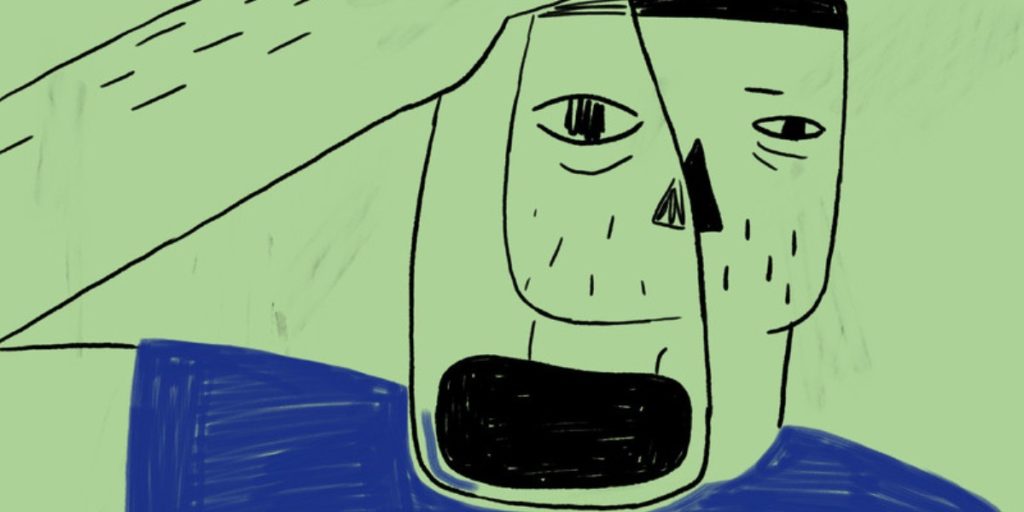As short films go, Sour is ultrashort, less than two minutes long. But damn it hurt!
Daniela Sherer’s colourful animation presents the day in the life of a man who is not coping without his love. He tells himself to do normal things, and then when he cannot ignore the temptation any longer, he picks up the phone. The screen fills with the colours to match the ups and downs of this person’s day, his loss, his joy at speaking to her, in an almost synaesthetic way: the palette is simple and bold, though the main colours and accent shapes alter drastically to reflect his changing mood.
And they reflect it so well that I felt almost nauseous in my sympathy for him. I can feel his hope when he makes the call, because it’s there on the screen in blue and white triangles; and I can feel the despair when it comes, in murky green and relentless black puke.
As well as Sour’s visuals, the other technique which sealed the success of this tiny film is the structure. I have to restrain myself from explaining though, because Sour was so quick that I didn’t see it coming, and that’s what made it effective. I really hate and admire the way a brief cartoon can demonstrate that rejection isn’t finite: it goes on.
I’ve not mentioned the voiceover. The main character of Sour has an inner voice, provided by Ryan O’Connor, which seems to taunt him, discourage him, never letting go. O’Connor’s almost monotone is there all the time, and our man has to mentally push against the tide of this voice to maintain a normal day. Don’t I know it.
The combination of visuals and voice are sufficient to sum up exactly what coping with a breakup does to a person’s typical day, but on top of that the writing is truly astute. Nothing is spelled out explicitly about what he is going through, but there are plenty of (verbal) lines to read through instead, which is canny: someone struggling to cope in real life probably wouldn’t tell you directly how they are, either. I have a feeling a good deal of experience went into Sour, which makes me wonder why the main character is a man, rather than a woman; perhaps Sherer was removing herself from the story it presents.
Think I’ll watch it a fourth time. There is a moment of hope, and a whole lot of catharsis.

